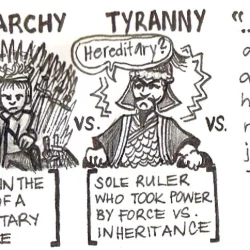Combatting Dystopias
We live in a world where dystopian societies are recurring themes in literature and media, so observing different types of governments and how they could be abused is essential. After observing the Wikipedia article “List of Forms of Government” and a selection from Hobbes’s Leviathan, I feel indirect democracies are Continue reading




